My Uncle Tom was a dedicated collector of things he thought worth saving, and his motto was, “He who wastes not, wants not.” Anyone was always welcome to look through his collection under Grandma’s house, for some fancied or needed article. Nowadays, he would be thought of as a dedicated recycler of reusable things. But in the 1920s Grandma used to say, “Tom had better look lively, because I haven’t got time to waste sorting out all the bits and bobs that come into the house.”
Under Grandma’s house I had a stool made from an old kitchen chair and painted bright red. I liked to sit with Blackie the dog, next to Uncle Tom on the concrete slab he had put in, where he mended shoes. Pieces of wood or other objects were placed on the rafters. From his collection bucket, I would pass up assorted items that he put into jars or tins, attached by their lids underneath the rafters. Whenever he said, “That nail’s too bent to keep,” I put it in the ‘bent-nail’ tin. When the tin was full we went into the backyard, Uncle Tom with the shovel, and I with the tin, and he used to dig nails into the earth around blue hydrangea bushes and choko and passion-fruit vines. Sometimes he tossed nails into the fowl-run because, he said, nails helped to make the eggshells strong. But I couldn’t figure that out then, as the chooks didn’t eat them.
Grandma and Uncle Tom lived in a ‘worker’s cottage,’ outside the centre of Ipswich. I was three years old when Father put his ‘disability’ payout from the British Army into a down payment on a small house in East Ipswich. Most Saturday mornings Mother and I (later with my brother in his pram) walked the mile to Grandma’s house through Queen’s Park which, seventy-five years later, remains a pleasant, tree-shaded place for people of all ages to visit and have picnics. Often we took lettuce or cabbage leaves from Father’s vegetable patch, to feed the rabbits, guinea pigs and birds in their enclosures. I liked so much to feed the animals and play on the swings that sometimes it was difficult for Mother to get me to continue our walk to Grandma’s house, where I was to be her ‘little helper’ until Mother came back from shopping in town.
Uncle Tom often greeted me with such sayings as, “I see you’ve been riding Shanks’ pony again. He must have worked up a thirst, I hope you gave him a drink of water.” After Mother explained the meaning of that remark, I would reply, “Yes, Uncle Tom, and now Mummy’s riding Shanks’ pony into town.” We shared a laugh over his jokes but, when he called me his ‘clever little maid,’ if Grandma heard him she would declare, “She’d be better off trying to be good for a change, instead of clever.”
When Mother returned, we sat at the kitchen table with its flower-painted oilcloth cover, and ate vegetables such as lettuce, tomatoes and perhaps cucumbers from Father’s garden, and a cottage loaf with butter and home-made jam. We usually had black or white German sausage or ham. There was real cheddar cheese too, cut from a large, muslin-wrapped yellow wheel at Cribb & Foote’s grocer’s, where we sat on stools with plaited seats. The men who served us wore long blue-and-white checked aprons. On the sawdust-covered floor there were huge rounds of tree-trunk, called ‘chopping blocks.’ When I was there I was given a piece of cheese, sausage or ham ‘to try for flavour,’ like the grownups.
When Mother bought jellied pig’s trotters for Grandma, I thought they were disgusting, but was told I would get a good hiding if I ever said that to Grandma. Uncle Tom kept the cleaned pig’s knuckles in a jar under the house, and taught me to play ‘jacks,’ but he usually won, because his hands were much larger than mine. I used to stare at him, when he took out his bottom teeth and put them in his pocket before eating lunch, until Mother noticed it and stopped me. After lunch she said that Uncle Tom lost all of his own teeth because when he was a child he ate too many sweets, which could very well happen to me, and if ever I said anything to him about his false teeth she would make me very sorry indeed.
At Grandma’s house I enjoyed eating pears and custard for ‘afters,’ until one day I watched her while she peeled some chokos, halved and boiled them and added sugar. When they had cooled down in a bowl on the windowsill, she added vanilla extract and put them in the icebox. Uncle Tom said they were called ‘poor man’s pears,’ and he liked them. But I wouldn’t eat them after that, because I did not like chokos.
Late in my third year I had an accident, which lingered in family anecdotes for years. I had gone down to the lavatory, which was next to the fowl-run, and behind the trellis for the passionfruit and choko vines. The ‘night-soil’ man took away the pan each week at night, replacing it with a freshly creosoted pan, and refilling the sawdust box, which had a scoop cut from a canned fruit tin. I was standing on the seat reaching for some paper, which Uncle Tom cut from shopping paper and hung on a large nail, when I slipped and fell into the pan. I was screaming, and Uncle Tom, saying ‘There, there, little maid,’ hosed me down and finished me off in the bathtub with his strong-smelling carbolic soap. He also cleaned and relined my precious red-patent shoes.
I ceased from being Grandma’s ‘little helper’ late in my third year, towards the end of 1927, and was Uncle Tom’s ‘little maid’ until, because of lack of work in the Great Depression, they moved northwest to Mount Isa. We followed them in late 1931, for Father to join my uncles who were working in the Mine. My change of status came about when Grandma was making her famous Christmas puddings on the kitchen table. While I was helping her by washing threepenny coins to go into the puddings for ‘surprises,’ she had to go down to the lavatory, and I was left alone in the kitchen.
Thinking to be helpful to her, I put the coins into the pudding mixture. Then, with a lot of effort, using the wooden spoon, I stirred in a bowl of eggs with their shells. My Grandmother, who was usually placid and soft-spoken, shrieked loudly when she saw what I had done. Red-faced with anger, she shook me, calling me a shocking, wicked child, and asking God to help her and save her from me. I was crying bitterly when Uncle Tom came and saved me. He washed my hot face with cold water on his bath flannel, and soothed me, saying, “There, there, don’t take it so to heart little maid. All things come out in the wash, and you can be my little maid from now on.”
After lunch Mother had to go back into town to replace all the ingredients for the Christmas puddings, except for the eggs and coins. Afterwards, I was tugged along and grumbled at, so that I was crying most of the way home. However, I was happy being Uncle Tom’s helper until they moved away, up to Mount Isa. When I asked questions he never was cross with me like Grandma was. Sometimes when I asked her what she was doing she would reply, “I’m making a wigwam for a goose’s bridal,” or “I’m going there and back to see how far it is,” or “Curiosity killed the cat.” She used to say she never knew such an annoying child for asking questions. Uncle Tom liked riddles. Two of his favourites were, “What is the longest word in the dictionary?” And I would say, “ ‘Smiles’, because there’s a mile between each ‘S.’” and “What goes up and never comes down?” “An umbrella,” I used to answer.
Sometimes when we arrived at Grandma’s house, Uncle Tom would be sitting at the polished dining-room table, with a special lens on one eye and a lamp shining down on a clock or watch he was repairing, and I would hand him items he pointed to. There was a pretty gold watch, with tiny pink flowers on a blue band around the face, which I wanted. Uncle Tom said it was useless, as its works didn’t tell time. I didn’t care as I couldn’t tell time, and wanted it for a bangle. Until it disappeared, I kept telling him he owed the watch to me because, despite my tears, he cut off my gold Christening bangle when it became too tight on my arm. But he just kept on softly whistling or singing. He whistled beautifully, and sometimes imitated birds’ calls for me. As I recall, he whistled a good deal of the time when I was with him.
When Uncle Tom left for work he took his lunch and thermos on the back of his motorcycle, in his brown leather satchel from the Great War. At home again, he tipped tacks, nails, screws, wire, rubber bands and other items from the satchel into the collection bucket kept in his bedroom. On Saturdays, after tidying away his clock and watch ‘paraphernalia’ as he called it, he usually said to Grandma, “I’m taking my little maid downstairs. Under the house we went, with Grandma calling out “Good riddance,” or “Don’t hurry back up.” But she always called us for lunch when Mother came back. Sometimes I carried up a ripe pawpaw from the trees near the fowl-run. Uncle Tom put shiny spiraling strips cut from tin cans on the trees, but still some fruit got pecked by bats or birds, and was thrown into the fowl-run for the chooks to eat.
A very large fierce rooster in the fowl-run really hated me. Whenever I dragged a stick along the chicken wire, he would run at the wire netting, lifting high his tall tail feathers, and telling me off in a loud voice. His eyes glared, and his red comb and wattles shook, as he scratched at the ground with his strong nails and feet. But Uncle Tom really liked that rooster and told me, “Orpie is a grand chap, and only doing his duty protecting all the hens who are his wives. It’s a shame for you to tease him.” So, to please Uncle Tom, I stopped teasing Orpie. But when I was at Grandma’s house, and she or Uncle Tom went into the fowl-run after eggs, I used to stand at the top of the backstairs. I felt sure that rooster would attack me if he got loose.
I loved Blackie, who played hide-and-seek with me and never got tired of chasing after his ball. I knew he would never hurt me, although he was a large, fierce-looking dog. He was black, with a white chest and ruff, and a very loud bark which, Uncle Tom assured people, was far worse than his bite. It was his job to guard the backyard and fowl-run and scare off strangers, dogs, or other animals. Sometimes he went for a walk, but always came home, and Uncle Tom used to say that he thought Blackie was the father of a few pups around the place. One thing I was quite sure of was that he dearly loved my Uncle Tom.
When we worked on the collection under the house, near Blackie’s kennel, he sat and watched everything Uncle Tom did. His flea soap, powder and flannel were kept on one of the rafters. When he was bathed with the hose he jumped every which way, and had to be tied to the clothes-line to dry off, otherwise he would go roll in the compost heap, scratch it all over the place, and need another bath.
As did many family men in those days, Father repaired our shoes and had a hobbin-foot, or shoe-last. My Uncle Tom’s hobbin-foot and his cobbler’s box, which held a lot of other shoe-repairing things, might have been Grandfather’s in England. They were kept under Grandma’s house on the rafters or the concrete slab. I enjoyed sitting on my red stool and passing him items from the collection bucket. He used tacks for resoling leather shoes, although ‘Kromide’ soles were stuck on with glue. After he trimmed the edges of the soles, I handed up to him a wax-vesta match, with the match tin and a stick of sealing wax the same colour as the shoes. He melted the wax and ran it along the edges of the soles so the shoes looked new. I thought Uncle Tom was ever so clever, because he knew so much and could do so many things.
Once I asked Uncle Tom to tell me how it was that he was able to do so many things. He explained that it was because he had been raised in very hard times, had gone to the ‘School of Hard Knocks,’ and become a ‘Jack of All Trades.’ When I repeated this to Grandma she laughed and said he was certainly that, but he was a ‘Real Corker’ too. I thought that must be why he collected corks of all sizes, although I had never seen him using them. But I knew Grandma used some when she was bottling pickles or jam. She grew rosella bushes by the back fence, and made rosella jam which I liked to eat, but we got sore, red fingers and thumbs from peeling the hips.
Uncle Tom told me that his father, John Tilley, made and repaired the big, heavy boots worn by the policemen at Hackney Police Station in London. They thought he was a very good cobbler, because he made the uppers of the boots in such a way that they didn’t hurt the policemen’s bunions or corns when they walked their beats on the streets of Hackney. According to Uncle Tom, Grandfather, like most cobblers, spat the tacks from his mouth onto the soles of shoes or boots as needed. It was thought that was why he died of ‘galloping consumption’ in 1915, when he was forty-eight, and Grandma was forty-four years old. When I told this story to Grandma she agreed and added, ‘along with the drink.’ But in later years I heard her say, more than once, that for her his death was an Act of God, as she had borne fourteen children in twenty-five years, and raised eight, which was a very good record for those hard times.
One Saturday morning as Uncle Tom was away until noon, Grandma sat me on the big, cushioned rocker in her bedroom, with her hatbox filled with greeting cards, snapshots and keepsakes on my lap, knowing how I enjoyed looking at them. She left the door open, and when Mother came back from town she looked in the room, quietly closed the door and put back all Grandma’s clothing, hats, shoes, beaver coat and jewellery, which I had been trying on in front of the dressing-table mirror. Then she tidied up the dressing table with her handkerchief and, silenced by her hand over my mouth and warning shakes of her head, I was marched quickly to the bathroom. There, with Uncle Tom’s horrid carbolic soap and flannel, I was scrubbed clean of powder. However, a popular cheap perfume, ‘Evening in Paris’ that was given to Grandma, but never used by her, had soaked well into my dress.
My Grandma did ironing for people, and when we entered the kitchen where she was putting away her ‘Mrs Hobbs’ petrol iron and the ironing board, she told Mother that she was wearing far too much scent. When Uncle Tom came home for lunch, he said, “Nellie, you should watch yourself wearing so much perfume, as men could think you are a ‘fast’ woman.” Many years later, when Grandma was on one of her weekend visits to us, I revealed the truth of that incident to her. She shook her head and said, “I should have known it was your doing, Nellie rarely wears scent, and when she does it’s only Yardley’s 4711 Eau de Cologne. There are no two ways about it Marcie, you were a holy terror of a child.” I have sometimes wondered if that episode might have been the start of my liking perfume, but trying never to wear too much.
Most cottages and workers’ houses at that time had ‘tongue-and-groove’ rooms, but Grandma’s rooms were painted, while ours were varnished. I think Grandma’s room was pink, while Uncle Tom’s was blue, and on one wall was a large, coloured picture of him on a brown horse. Uncle Tom had a big moustache, wore an English Light Horse Brigade uniform and hat, and carried a rifle and brown leather satchel on the horse. I never tired of looking up at that picture, especially as I had been warned never to ask Uncle Tom, Uncle Alf or Father, about the Great War.
In Grandma’s sitting room were a ‘His Master’s Voice’ gramophone and an old piano, which got a lot of use at family get-togethers. Two uncles played the piano by ear, only Mother had taken some lessons, and we children sometimes blew on combs wrapped in tissue paper. When Uncle Alf came from Toowoomba with Aunt Lily, he brought his piano-accordion. Grandma and Mother had sweet soft voices, and Grandma always sang her favourite old-fashioned ballads with gestures and facial expressions. It was said that Father had perfect pitch, and he gave the note when the men harmonised songs such as ‘On the Road to Mandalay.’ He also played the Hawaiian steel guitar and sang island songs. Uncle Tom played the harmonica or whistled beautifully, both of which were accompanied by a lot of trills. Uncle Bob later became a trained tenor, as did my Cousin Stanley, the oldest son of Uncle Ben and Aunt Hannah.
At the end of the evening Father sometimes gave a dramatic monologue, ‘The Green Eye of the Little Yellow God,’ which left me afraid to go down to the lavatory, and Mother would have to wait for me on the backstairs. Even with the aid of torchlight, the backyard was a fearsome place at night, with the ‘bogey-man’ lurking to steal away naughty children. And I knew, from being told so, that I was often naughty.
Early in my seventh year, 1931, we moved to Mount Isa for Father to work in the Mine. My Uncle Ben, a miner, was killed in the mine in 1929, leaving Aunt Hannah a widow with three little boys. We were there for three years, living in harsh conditions, in a tent near that of Grandma, Uncle Tom and Uncle Bob. Uncle Bert and his wife lived in another, and my uncles worked in the Mine. There was great hardship when the men ‘struck’ for months with only Union subsistence money and Grandma and the uncles left Mt. Isa. After the strike ended, in late 1934 we too went back to Ipswich.
Father, who had been a signaler in the British Army in the Great War, both in Morse code and with flags, had become a Lighthouse-Keeper on the Queensland coast when I was a baby, and Mother and I were able to be with him. But as the Great Depression of 1920 to 1938 worsened, all English returned soldiers were replaced by Australians. This happened again when he was working for the Railways. However, in 1939 Father enlisted in the Australian Air Force and so, in 1943 was eligible to join the Australian Federal Police, serving until he was sixty-five years old.
When I was a child England was our ‘Mother Country’ and we were British until after World War II. We marched into school to ‘gung-ho’ rousing songs such as ‘The British Grenadiers,’ and learned British history. It was no surprise in 1935 when Grandma decided that she was ‘going home’ to live out her years (she was sixty-five) with her daughter Clara and family. When she returned to Australia, after a few months, Grandma said that she couldn’t stand the English climate, and it was good to be back in Queensland where the sunshine was taken for granted. She declared it a pity that people here didn’t know when they were well off, and that Aunt Clara was ‘far too set in her ways, to listen to good advice from her own Mother.’
What did surprise and shock the family was Uncle Tom’s sale of Grandma’s house, soon after she went back to England. He stored some things and took the rest up to Cardwell in North Queensland, where he married a maiden lady in her late thirties, the sister of an old friend of his. In his middle forties, and eight years older than Father, Uncle Tom had been considered a confirmed bachelor. Most of the adults in Mother’s family were annoyed with Uncle Tom for what was considered his treachery in selling Grandma’s house, and the secrecy surrounding his marriage. But I was young and gave little thought to any of these matters. Grandma came back to Australia in 1936.
Early in 1936 Father was still unemployed so our house was sold and we went to New Zealand. The work-situation there for Father was very bad, so we came back to Australia, poorer than when we left. Late in 1936, after a few months in Brisbane, returned to Ipswich, where Father worked for the City Council, guarding the vehicle compound near the cemetery. He worked until midnight and, with my head full of gothic tales, I teased him so much about ghosts that one Friday he took me to work with him. Each half-hour, when he walked his rounds, I locked myself in the guardroom. By midnight every ghostly story I ever read or heard came back to haunt me. I worked myself into a state of terror, and never teased him again about his job.
From 1936 on, Grandma lived in Brisbane with her youngest son Robert, his wife Ruby and their two sons, for over seventeen years until her death in 1953, aged eighty-two. By the late 1930s it had become customary to ‘tune in’ to the wireless at night, until after the nine o’clock news, have a light supper of tea and toast or cake and go to bed. In the evening most women knitted, darned socks, did mending or ‘fancy’ needlework, while listening to the wireless. Grandma did ‘fancywork,’ but took up knitting late in life. She was proud of the woollen jumpers she made for Robert and, later on, the boys. However, after she had gone to bed, dear Aunt Ruby would unravel and correct Grandma’s knitting and re-knit it to where it was left. That
truly was a labour of love, of which Grandma happily remained unaware, and I found out about it from staying with them a few times, overnight.
At the end of 1938, aged fifteen, I became Dux of Blair State School, and won a coveted scholarship to Ipswich Girls Grammar School. I was very fortunate to go to high school, instead of going out to work, as did most of my classmates. But I could not dream of going to university when only the ‘well to do’ could afford to educate their daughters. Near the end of 1940, aged seventeen, I commenced work as a junior stenographer and studied at the Technical College for two nights a week for a year, until I enlisted in the W.A.A.A.F. soon after my eighteenth birthday in October 1941. Inducted in the following January, I did basic training (we early inductees wore men’s blue overalls tacked up) and then worked as a stenographer at I.T.S. Headquarters, Sandgate, until I volunteered for eight weeks training at General Macarthur’s headquarters in Brisbane, to become a teleprinter operator. I was one of several young women sent to Townsville in 1942 to relieve male operators for ‘forward duty.’
From 1938 on, the threat of war in Europe and fear of the ‘Yellow Peril’ following Japan’s appalling invasion of China since 1935, was on all minds. Families sat ‘glued’ to their wireless sets for the nightly nine o’clock news broadcast, when the eminent Doctor Goddard kept calling for ‘ten thousand planes for the defence of Australia.’ In September of 1939 war was declared against Germany by Great Britain and the Commonwealth, in support of the invaded European countries. Father enlisted in the R.A.A.F., among many unemployed men, and World War II put an end to the ‘Great Depression.’ Weekly Cinema ‘news gazettes’ and newspapers portrayed atrocities and devastation being wreaked on helpless, innocent people by the German and Japanese armed forces during their unprovoked invasions of neighbouring countries.
Early in the war years a family reunion was held in Brisbane at the home of Uncle Robert, Aunt Ruby and Grandma. We went there from Ipswich, Uncle Alf and Aunt Lily came from Toowoomba, Uncle Tom, Aunt Gladys and their little boy came down from North Queensland. Uncle Bert, other relatives, cousins and family friends also were present. I was disappointed when I saw my Uncle Tom, for he seemed to have shrunk. Instead of looking up at him I looked straight at him, for he was only a little taller than I was. His hair and moustache were sandy and wispy and he was very quiet, unlike his wife who was a tall, friendly woman. I could see no resemblance to the soldier on a big horse in the picture that I remembered. Nor could I see any likeness to the clever, entertaining uncle whom I loved and admired when, as a little girl, I walked to Grandma’s house in Ipswich from our home in East Ipswich.
I went outside to where the younger children were playing on the grass. Soon I heard a lot of laughter coming from inside the house. Father came out and asked me why I had left the party. I told him, “Seeing Uncle Tom as he is now, makes me wonder how I could have been so mistaken in him all those years ago.” I soon wished that I could retract those words, when Father said that he was disappointed with my lack of discernment, and that I must learn not to judge people by how they looked in their older years. But he allowed that perhaps I could be forgiven on account of my youth and being self-absorbed. “You have a lot to learn my girl,” he said, and added, “Tom Tilley is one of the finest men I have ever known, an honest man and a good son.”
Father asked me, “Did you hear all that laughter and noise a few minutes ago? That was everyone talking and laughing about your Uncle Tom supposedly selling your Grandma’s house in 1935, and how the truth of the matter came out: that the ‘worker’s cottage’ in Ipswich, and most of its contents, belonged to him. He simply never told people that he paid off the house over ten years, helped his mother to maintain it, and paid her fare to England and back to Australia.”
Father reminded me of tales of my two uncles’ service in the Great War, how Tom and his older brother, Uncle Alf, who had emigrated to Queensland in 1912, enlisted in the Cavalry, Uncle Tom in England and Uncle Alf in Australia. In their separate Divisions, they were shipped to Egypt, where they met up with each other again by chance. The Light Horse Brigades, English and Australian, went on to Mesopotamia, Palestine and France. After his horse was killed, Uncle Tom became a motorcycle dispatch rider and in 1918 was wounded in France. Father, serving in France with the King’s Own Scottish Borderers, suffered being gassed and shell-shocked. Sent to a hospital in London, he found himself in the next bed to Tom Tilley. Father had gauze dressing, from a shrapnel splinter, across his forehead and one eye. He liked to tell the story of how ‘sweet-faced’ sixteen-year-old girl came to visit her brother Tom, who said to her, “Nellie, give some grapes to that young fellow in the next bed, he hasn’t had any visitors.” That was how my parents met in 1918.
Needless to say, after Father’s lecture I was able to see my Uncle Tom more clearly. I have always been glad that I went back inside, and told him how I cherished my memories of the time when I was his ‘little maid,’ and of his unfailing kindness to me. He said, “Marcie, I’m proud of you. I always knew that you would go a long way, because of your insatiable curiosity.” Talking about it all later, Mother and I had a laugh together, recalling the story of how Rudyard Kipling’s ‘The Elephant’s Child’ got its trunk through its ‘satiable curtiosity.’ That episode made me understand that it didn’t do to underestimate Uncle Tom, or his sense of humour.
Father had enlisted in the Australian Air Force in 1939 and I in January 1942. I served in Townsville, North Queensland, but never again saw my Uncle Tom, who lived in Cardwell. After the war I was away from Australia for many years and during that time he and Aunt Gladys died. Sometimes still a picture comes into my mind’s eye of a small girl, seated on a brightly-painted stool near Blackie, under Grandma’s house, and passing up to Uncle Tom items for his collection.
Uncle Tom’s son Dennis grew in North Queensland, and became a Mining Engineer for Mount Isa Mines. I like to picture him too, as a small boy, sitting at his father’s feet under their high-built ‘Queenslander’ house in Cardwell, North Queensland, passing up to his father items for his collection, and sometimes putting into the bent nail tin those nails too bent to keep.
Subscribe to:
Post Comments (Atom)
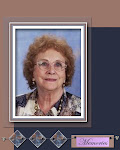


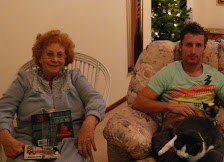
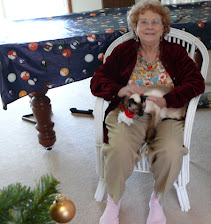
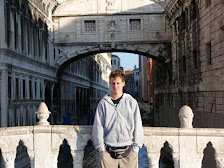
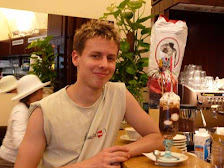
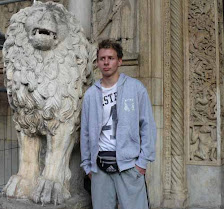
No comments:
Post a Comment